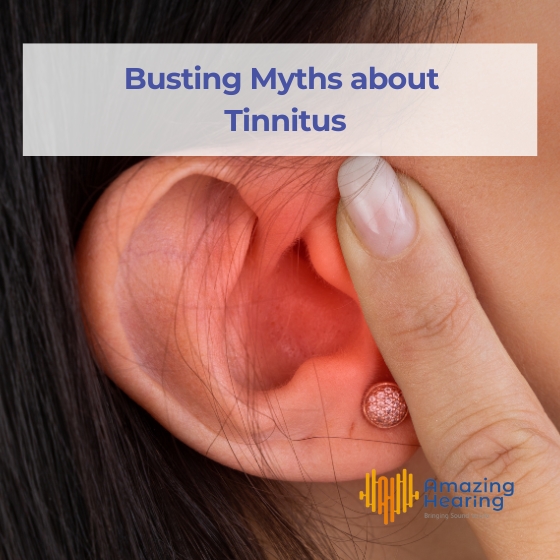Tinnitus is a common condition that affects millions of people worldwide. It is characterized by ringing, buzzing, or other sounds in the ears when there is no external source of sound present.
Despite its prevalence, there are many misconceptions and myths surrounding tinnitus. Today, we will debunk some of the most common myths about tinnitus and provide accurate information about this condition.
Myth #1: Tinnitus is a disease
Fact:
Tinnitus is not a disease. It is a symptom of an underlying condition, such as age-related hearing loss, ear injury, or certain medications.
In rare cases, tinnitus may be a sign of a more serious medical condition, but in most cases, it is not dangerous and does not require medical treatment.
Additional Information:
While tinnitus is not a disease, it can significantly impact a person’s quality of life.
It may affect their ability to concentrate, sleep, and even socialize, leading to anxiety and depression in some cases. Therefore, it is important to seek proper diagnosis and management of tinnitus to improve one’s overall well-being.
Myth #2: Tinnitus only affects older people
Fact:
While tinnitus is more prevalent in older adults due to age-related hearing loss, it can affect people of all ages, including children. Around 20% of the population experience tinnitus at some point in their lives.
Additional Information:
Although tinnitus may be more common in older individuals, it does not mean that younger individuals are immune to it.
Exposure to loud noises, ear injuries, and certain medications can also cause tinnitus in younger people. Therefore, everyone needs to protect their hearing and seek treatment if they experience any symptoms of tinnitus.
Myth #3: There is no treatment for tinnitus
Fact:
While there is currently no known cure for tinnitus, there are various treatment options available to manage the symptoms and improve one’s quality of life.
These may include hearing aids, sound therapy, cognitive behavioural therapy, and relaxation techniques.
Additional Information:
It is important to note that not all treatments work for everyone with tinnitus.
Finding the right treatment approach may require trial and error, and it is best to consult with a healthcare professional for personalized recommendations.
Myth #4: Tinnitus is caused by listening to loud music
Fact:
While exposure to loud noises can contribute to tinnitus, it is not the only cause.
As mentioned before, tinnitus can also be caused by other factors such as age-related hearing loss, ear injuries, and certain medications.
Additional Information:
It is important to protect our ears from loud noises, but tinnitus is not solely caused by listening to loud music.
It is a complex condition with various contributing factors, and it is essential to address all potential causes for effective management.
Myth #5: Tinnitus will eventually go away on its own
Fact:
For some people, tinnitus may disappear on its own after a short period. However, for the majority of individuals, tinnitus is a chronic condition that requires proper management and treatment.
Additional Information:
Ignoring tinnitus and hoping it will go away may lead to further distress and impact one’s quality of life. It is important to seek help from a healthcare professional if tinnitus persists for more than a few days or significantly affects daily activities.
Takeaway
Tinnitus is a prevalent condition that can significantly impact one’s quality of life. By dispelling these common myths, we hope to provide accurate information about tinnitus and encourage individuals to seek proper diagnosis and management.
Remember, if you experience any symptoms of tinnitus, consult with a healthcare professional for personalized treatment recommendations. So don’t hesitate to reach out for help and take control of your tinnitus for a better quality of life.
If you are looking to get a hearing test, Amazing Hearing is here to help. Contact us today to schedule an appointment and learn more about tinnitus management options.


